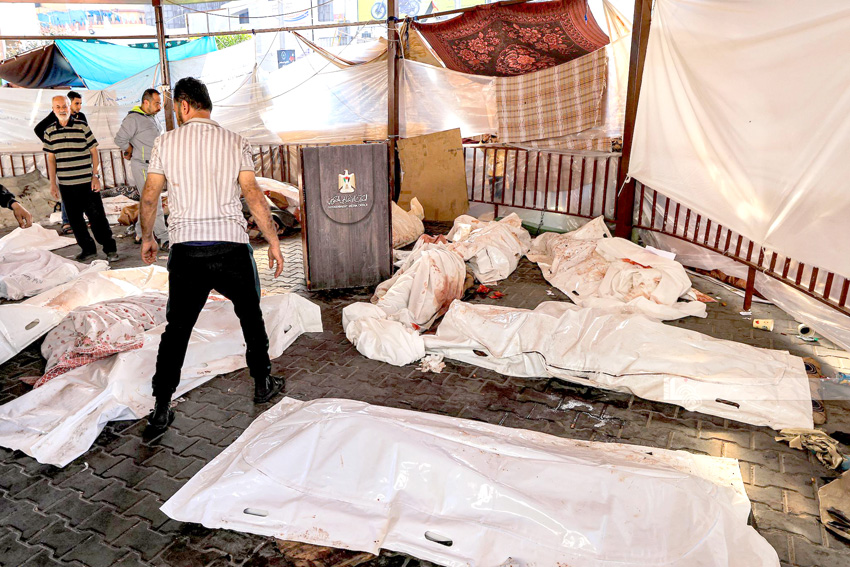
THE International Court of Justice (ICJ) yesterday delivered provisional measures in the high-profile case brought by South Africa against Israel, concerning allegations of genocide in the Gaza Strip.
Proceedings began with Presiding Judge, Joan Donoghue, referencing the October 7 Hamas attacks inside Israel, followed by Israel’s extensive military response in Gaza, which has led to significant civilian casualties, widespread destruction of infrastructure, and mass displacement of Gaza’s population.
Emphasising the human tragedy and loss of life, Judge Donoghue affirmed the ICJ had jurisdiction over the case, including the authority to impose emergency measures.
The court acknowledged the presence of a sufficient dispute under the Genocide Convention, granting South Africa the standing to submit the case.
However, the ICJ’s decisions stopped short of ordering a ceasefire, focusing instead on measures to mitigate death and destruction.
Senior UN official Martin Griffiths’ statement, describing Gaza as a ‘place of death and despair,’ was highlighted.
The Palestinians were recognised as a protected group under the Genocide Convention, with the court underlining the necessity of safeguarding them from genocidal acts.
The court also addressed the use of ‘dehumanising language’ by Israeli officials, specifically mentioning Israeli defence Minister Yoav Gallant’s statements that called for a ‘complete siege’ of Gaza and ‘referred to combatants as ‘human animals’.
In its provisional measures, the ICJ ordered Israel to take all necessary steps to prevent genocide, including ensuring its forces refrain from genocidal acts and preserving evidence of alleged genocidal actions.
Israel is also mandated to report back to the court within one month on its compliance with these orders. Furthermore, the court instructed Israel to prevent and punish any direct incitement of genocide in Gaza.
As part of humanitarian considerations, Israel is required to facilitate the provision of basic services and aid in the Gaza Strip.
Although the court acknowledged the potentially genocidal nature of at least some of Israel’s actions, it stopped short of issuing a comprehensive order for the cessation of hostilities by Israel.
The evidence presented convincingly demonstrated that Israel’s actions disproportionately and overwhelmingly affect the civilian population.
The ICJ lacks a direct enforcement mechanism for its rulings.
However, a directive from a United Nations’ body like the ICJ, especially one to end hostilities, carries significant symbolic weight and could have led to tangible international action.
The obligations of the Genocide Convention bind all signatory states, including nations like the United States and the United Kingdom, which have been supplying arms to Israel.
Such a directive could have triggered domestic legal ramifications in these supplier countries and potentially intensified opposition to these policies within their borders.
In its decision, the ICJ refrained from discussing what constitutes legitimate defence for Israel going forward.
This omission effectively allows Israel to continue its military operations, provided it can show steps are being taken to prevent genocide.
This approach must be seen as ineffective. Israel has already ignored such decisions issued by the United Nations Security Council several times.
For those who had pinned their hopes on the International Court of Justice’s (ICJ) ruling as a means to alleviate the suffering in Gaza, this judgment comes as a profound disappointment.
Although the provisional measures do represent a limited form of victory, following the ICJ’s acknowledgement of Israel’s potentially genocidal conduct, their impact is significantly muted.
The court’s decision falls short of imposing obligations on other states to diplomatically isolate or censure Israel.
Consequently, this ruling is unlikely to effect any substantial change on the ground in Gaza.
The absence of a directive for international action or a more forceful stance against Israel means that, in practical terms, the situation for the people of Gaza remains largely unaltered.
Recap of ICJ Ruling:
- The ICJ confirmed its jurisdiction to adjudicate the case.
- Israel is ordered to implement measures to avert acts of genocide in Gaza.
- Measures to prevent and punish incitement to genocide in Gaza are mandated.
- Israel must ensure the flow of humanitarian assistance into Gaza.
• The court imposes additional obligations on Israel to protect Palestinians, without specifically mandating an end to military operations in the Gaza Strip.